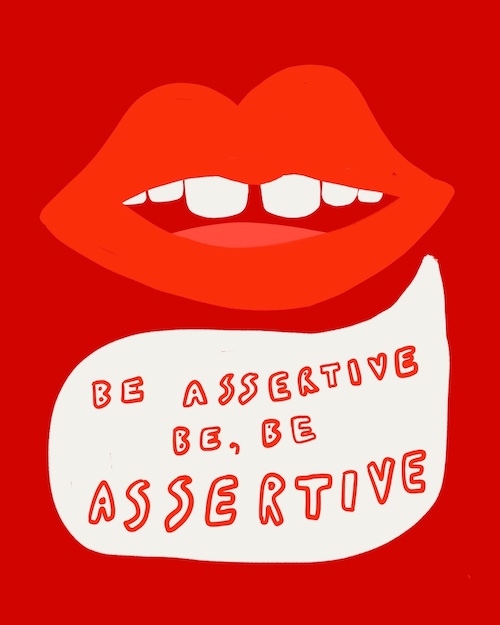The word “no” is misunderstood — it doesn’t have to be daunting or scary. This month, we enlisted the help of illustrator and designer, Kath Nash, to discuss the importance of “no” and uncover the positive in a seemingly negative word.

The word “no” is often associated with negativity, denial and rejection. But I’d like to talk about why “no” is a good word and why it’s important to hear it and say it often.
The Importance of Saying “No”
Hi, people-pleasers. *Looks around, waves to self in mirror* Believe it or not, no is a good word.
When I first started freelancing, I took every job that came my way. Want a logo? I got you. Wedding invitations? No problem. A custom portrait of your niece’s best friend’s hamster? I can squeeze that in.
Then, after a year of freelancing, I started my first full-time job. However, the freelance requests still kept coming and I kept saying yes. I kept saying yes even when I didn’t want to. I had such a hard time saying no that, despite a bad feeling in my gut (which I now know as a self-protective expression of anxiety), I said yes. Always.
Why was it so hard for me to say no? Guilt, mostly. The thought of saying no gave me a paralyzing sense of guilt that I might offend or disappoint someone. I was a people-pleaser who hadn’t learned boundary-setting and that’s a dangerous combination. Put that combination into the context of a career and burnout is sure to follow.
“No” is a simple but powerful boundary-setting word. Saying no to one thing protects time and space for another. And if some people don’t understand your boundaries or have different boundaries than you, that’s okay.
A magic trick that I learned recently is that I don’t even need a reason to say no. I can simply say “No, thank you” and drop a period at the end of the sentence with no guilt. That is an empowering feeling. It took me six years but now that I’ve learned to say no to things I don’t want to do, I have time for the things I really want to do. Finally.
The Importance of Hearing “No”
Another paralyzing feeling that pops up with annoying frequency is gripping imposter syndrome. *big smile, thumbs up*
The feeling that I’m not good enough has prevented me from pursuing many, many opportunities throughout my career. But I’ll tell you what I’ve learned…
If hearing “no” is the worst thing that could happen, why wait?
I started a running spreadsheet filled with companies and people I want to work with. When I have availability, I email a handful and tell them that I love them and want to design and illustrate beautiful things for them. I keep track of their responses and most are either “not right now” or send no response at all.
But… there are yeses. And the yeses make all the prior noes 100% worth it.
“No” is Your Friend
For a long time the word “no” felt like a bully. It was so emotionally charged, I avoided it at all costs. But the truth is that the costs of me avoiding the word “no” were my own well-being and success.
So I’ve since made “no” my friend. It stands up for me, advocates for me and gives me back time and energy for the things I want most.
Comments